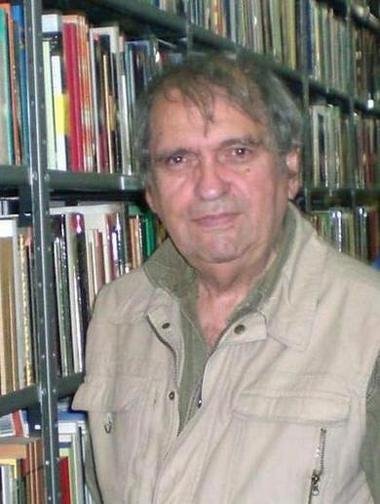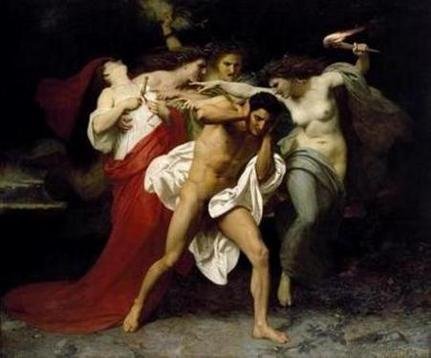
Managements by Rafael Cadenas or the poetry glimpsed (Part II)
Friends of @ADSactly, I leave you below my previous post. I only include a small part of a much more extensive work; so there are many poems and important aspects left out. I hope it still makes sense to you.
There is a bilingual (Spanish-English) version of Managements; through this link you can access it.
***
The poems in the second section of Managements are marked by the name that baptizes it: "Coexistence". All of them will contain a more collective and social reason, they will indicate realities and daily experiences, direct and punctual. The suggestion of a possible game with the name: "co-existence " will be observed, thought and written from the experience.
You goes grope
like drunk
on the route of loss
(so called
our second birth).
She leads us
off the map we drew up.
What we saw with doubt
-discovered-
we couldn't separate it.
of us.
We were that too.
The adventure
brought us
this good: not be owning.

In this poem the voice shows the recognition of his journey. Tentative and exploration have been the only guides in this itinerary that the speaker calls "route of loss": a route made up of losses, wandering and anguish. This route given or taken is a detour from the project instituted (by society, the environment) that has allowed us to reach a precarious truth: "not to be owners". That is, not to possess the authority and property over anything or anyone, not even over the individual himself; rather, to know oneself to be a needy.
And that truth is conceived as a gift given by adventure, that is, living. A journey sealed by doubt, the loss has granted the discovery of the other that existed in the traced identity; in the uncertainty inhabited that difference that constitutes us deeply. To find this paradoxical certainty is the beginning of another existence, that is why the loss constitutes "our second birth".
The title of the third section, "Mediations", is perhaps the most ambivalent. We conjecture various meanings from our interpretation of his poems. Mediations are interventions, interpositions. We can therefore say that we are made up of mediations: between ourselves and reality, between life and the senses, between the "I" and the "you". And at the same time we mediate: we participate to try, agree: we manage. The mediator par excellence is language.
That one
who met
the ordeal
to see oneself
assaulted by the Furies
anywhere
can say thank you
only
by to live.
This is a text nurtured by the mythical Greco-Latin reference, so often palpable in Cadenas' poetry. It is the punitive presence of the Furies, for Roman mythology, or the Erinias, for the Greeks. Already in Memorial I had used this figure: "To whom one has for your son / you left him / in the power of the Erinias".

The Erinias were the primitive divine forces in charge of punishing faults against the family and social order, especially excess (hybris), which makes the human being forget his mortal nature. Above this suggestive mythical substratum stands the poetic text, which constructs its own meaning.
The voice refers to an indeterminate subject that can be any man. The one who has suffered the sorrows and torments of destiny. The speaker knows his fate because he has experienced it as a limiting force, and therefore, he knows of its lack. But this awareness allows him to see the other unavoidable truth: "he can give thanks / only / for living". Life is the greatest gift.
In the poems gathered in the fourth section, "Of poetry and poets", reflections on poetry and its trade in general are coupled. The poetry itself, that of the author, is also dealt with; to that extent there is an autobiographical and self-reflexive background. Tributes are also paid to several poets (e.g. Rilke), with whom there is a personal affinity.
To the reader
Those who make the rules
they don't want us to talk.
we
but
the words.
They want
make us disappear
of the page;
but we don't resign ourselves.
We are old actors.
The poem involves us in the question of the presence or not of the real person in the poetic saying. Everyone, as a reader, interferes, enters into dialogue with the what and who says, in short, the crux of the text.
The poem entails a critical reflection on the tacit preceptive of modern poetry, in which the 'depersonalisation' of the poem stands out. The poem manifests itself against the absence or disappearance of the real person - author or reader.
The constitutive reality continues to speak in the poem, through words, but not reduced to them. The final phrase, somewhat ambiguous, contains the answer: "We are old actors". Cadenas has highlighted the return to the condition of actor, insofar as he who performs the action: "Action is the present, the vibration of reality, the movement of mystery". It will still be possible to speak through language, that old instrument that, although it often masks, reveals itself to us.

Very lonely words
of the one who puts them
in front of nothing
that weighs them
and he undoes them.
and throws them in his face.
to redo them, sign them,
revives them in their burning,
fill them up.
They are tested
with the terrible stone.
They are to be held
like they're waiting.
A poem with a harsh and harsh language, which confronts the poetic process, the writer's tense relationship with words, a subject so popular in Cadenas's work.
The solitude of the words, their helplessness, is the initial motive. These words are taken by someone - the poet - to contrast them "in front of nothing" which is the emptiness of meaning, silence, mystery. It is the great confrontation of the word with the deepest value, that moment in which the challenge of saying is faced.
In the trade of life, language can - and does - lose entity, vitality. We are witnessing, as contemporary thinkers have denounced, a 'language crisis'. Words can be signs without background, custom, facundia... Then, they are annulled and returned. It is the course of purification, of revivification, that is why the resonant alchemical and mystical image of "burning". The poet must renew the vigour of the words, give them firmness. The proof of words in this inner process (of the poet) is severe like purging, hence the image of the "terrible stone", a symbol linked to myth and ancient religions (the altar), and alchemy (the philosopher's stone). From there the words will come out refined and consistent.
Bibliographic references
Cadenas, R. (1983). Annotations. Venezuela: Edit. Fundarte.
Cadenas, R. (1986). Memorial (2nd ed.). Venezuela: Monte Ávila Editores.
Cadenas, R. (1992). Managements. Venezuela: Edit. Pomaire.
Cirlot, J-E. (1982). Dictionary of Symbols (5th ed.). Spain: Edit. Labor.
Grimal, P. (1982). Dictionary of Greek and Roman mythology. Spain: Edit. Paidós.
Written by @josemalavem
Click the coin below to join our Discord Server
)
Excellent work, @josemalavem, decanting Cadena's complex poetry for us.
Two ideas resonate for me: the "route of loss" and the "lonely words", the art of writing becoming its own route of loss.
I wonder if the society of the near future will allow the poets to do their work, to revive language and give it back its meanings.
I see a consistent and fast-moving process of degradation of language, as well as of identity. Individuals keep displayng behaviors that seriously question their mental sanity and the sense that words and action may have in their heads. From political actions or inactions to celebrity inhibriation, young people seem to be unable or unwilling to walk the path of loss, to have a second birth.
I appreciate your thoughtful reading, @hlezama, as well as your critical and profound commentary. As you well point out, there is a very serious crisis that we don't know how it will end. However, the function of the poet (or all of them), as Cadenas says, in a poem by Memorial is to insist: "The word is not the place of radiance, / but we insist, / we insist, nobody knows why".
I saw this post and was wondering if I could really take my time to read it carefully but guess what. It makes a lot of sense. Despite the third edition is Meditation I will definitely keep in touch more. Thanks @adsactly. Greetings from Nigeria.
Posted using Partiko Android
Grateful for your attention and your time, @mattsanthonyit.
@tipu curate
Upvoted 👌 (Mana: 5/15)
Like any craftsman or artist, the writer works his work little by little. His work material is words, so he polishes them, fills them with meaning. A word should be able to say more than words. Hence the importance of the work of a writer, who can never be left out of what he writes. Excellent work, @josemalavem.
Thank you for your reading and comment, @nancybriti. Indeed, for Cadenas (as it was for other great poets of Western culture), poetry is the work of an artisan for the painstaking work it entails, but not to look for false glitter or filigree, but, as he says, to note down, to record.
Greetings.
Wow. Thanks for sharing
Posted using Partiko Android
Thanks to you, @shinersfamily.
Hi, @adsactly!
You just got a 0.29% upvote from SteemPlus!
To get higher upvotes, earn more SteemPlus Points (SPP). On your Steemit wallet, check your SPP balance and click on "How to earn SPP?" to find out all the ways to earn.
If you're not using SteemPlus yet, please check our last posts in here to see the many ways in which SteemPlus can improve your Steem experience on Steemit and Busy.
Congratulations @adsactly!
Your post was mentioned in the Steem Hit Parade in the following category:
Oh, that's good. Thank you.
You're welcome @josemalavem
BTW, feel free to support back and vote for me as a witness